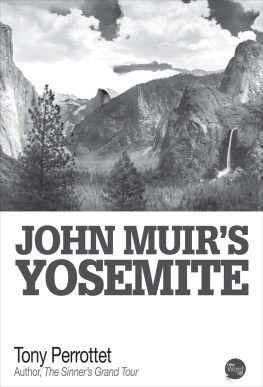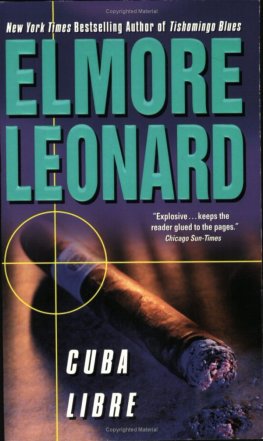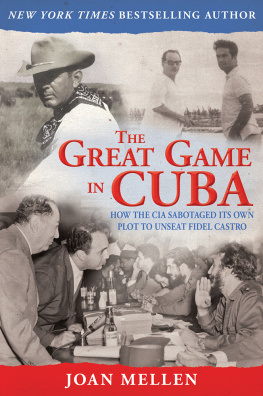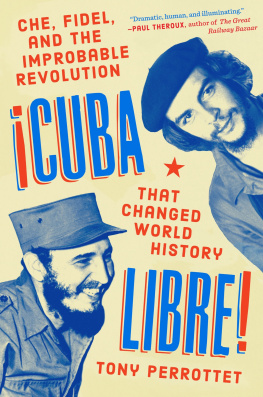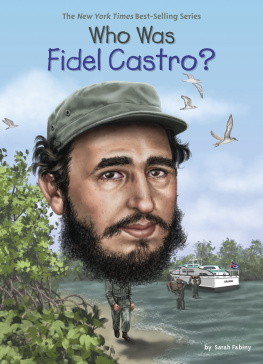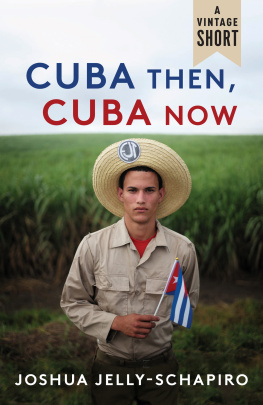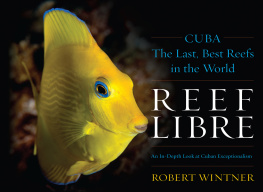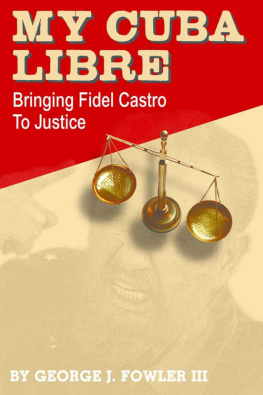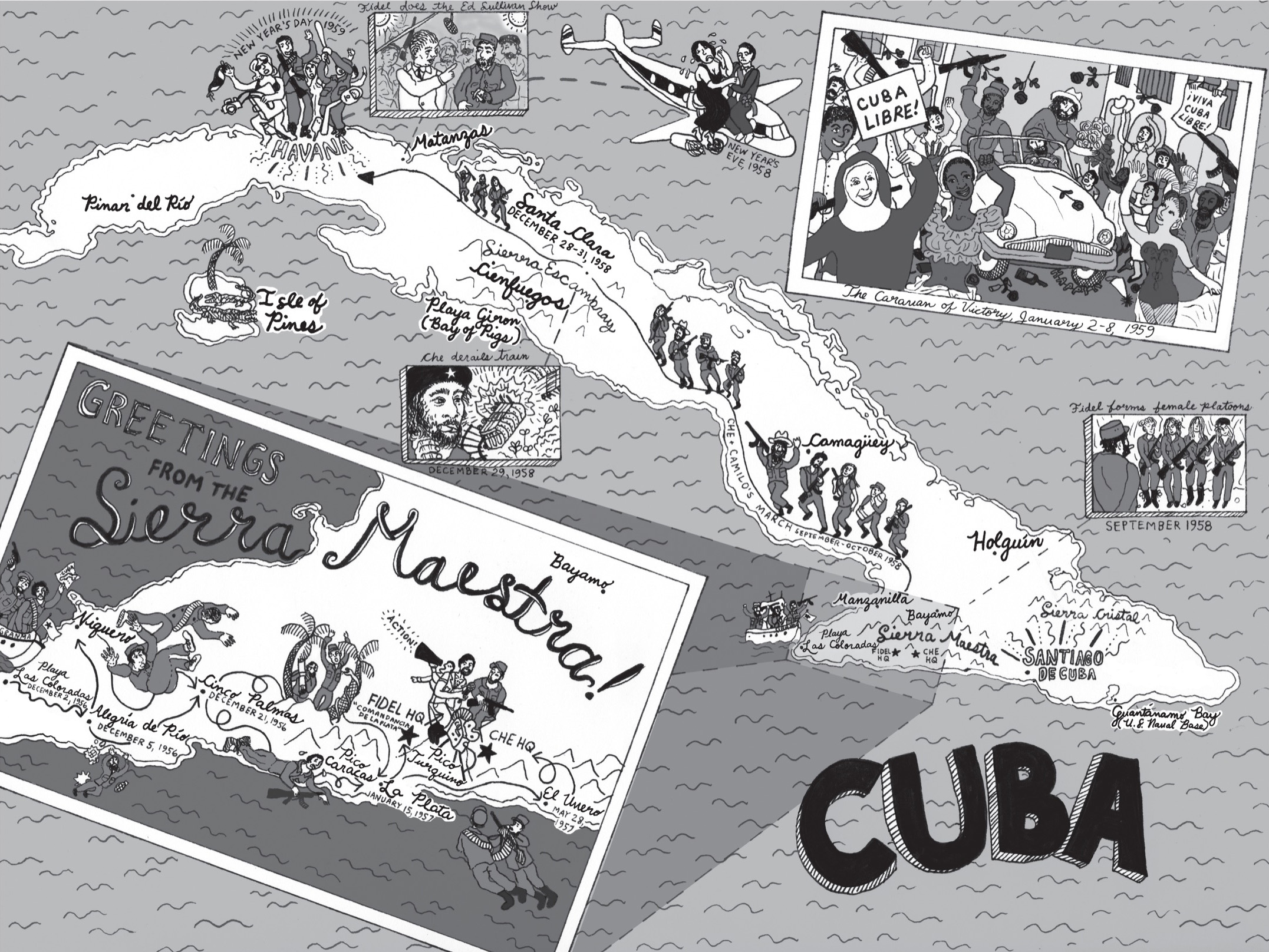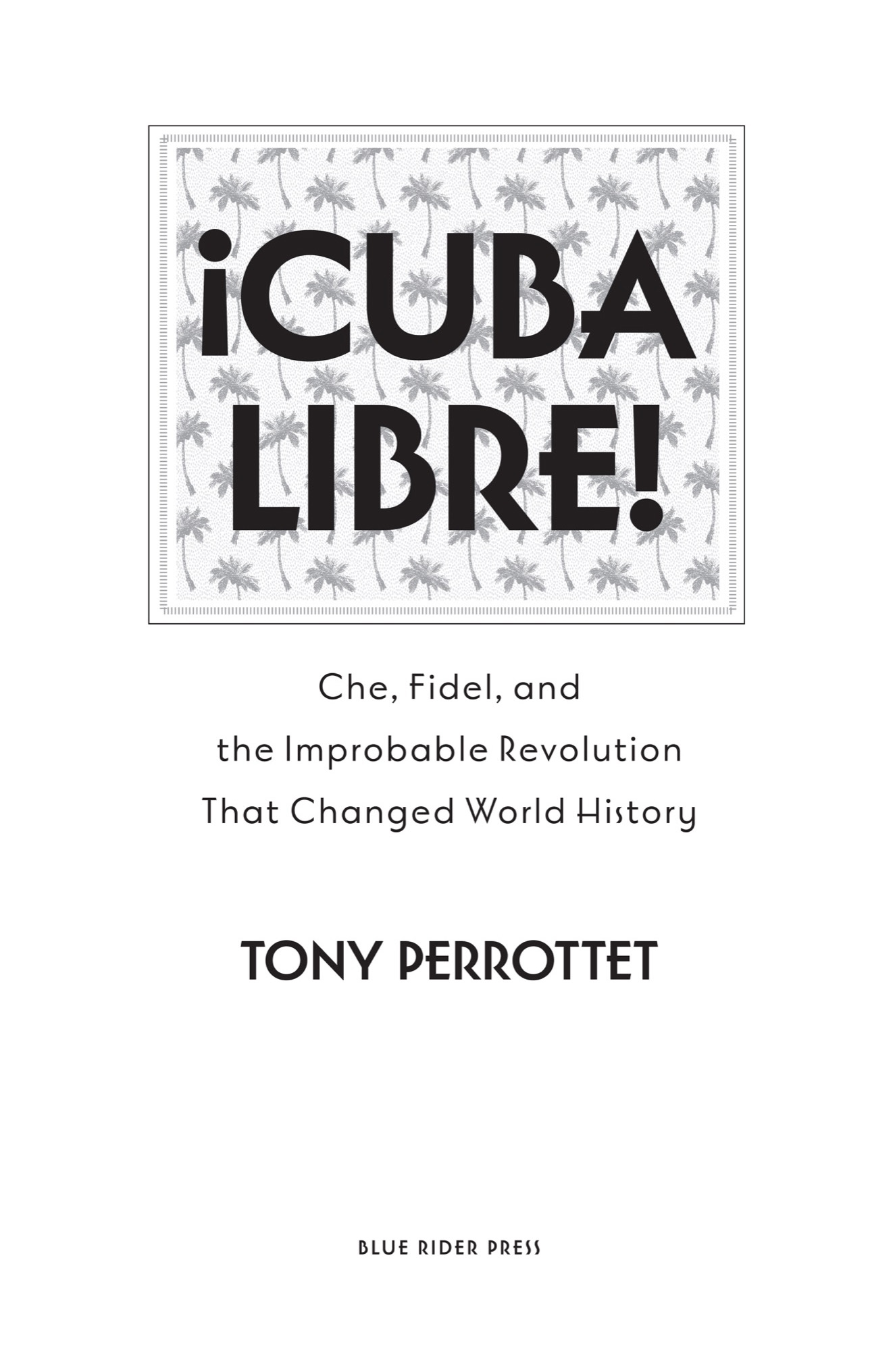ALSO BY TONY PERROTTET
Off the Deep End:
Travels in Forgotten Frontiers
The Naked Olympics:
The True Story of the Ancient Games
Pagan Holiday:
On the Trail of Ancient Roman Tourists
Napoleons Privates:
2,500 Years of History Unzipped
The Sinners Grand Tour:
A Journey through the Historical Underbelly of Europe
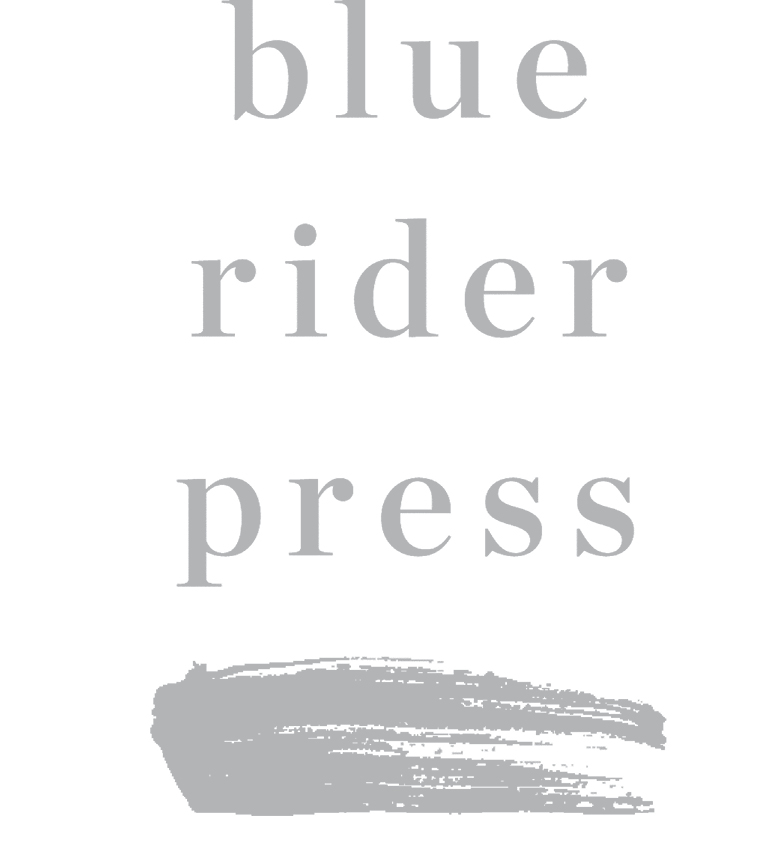
An imprint of Penguin Random House LLC
penguinrandomhouse.com

Copyright 2019 by Tony Perrottet
Penguin supports copyright. Copyright fuels creativity, encourages diverse voices, promotes free speech, and creates a vibrant culture. Thank you for buying an authorized edition of this book and for complying with copyright laws by not reproducing, scanning, or distributing any part of it in any form without permission. You are supporting writers and allowing Penguin to continue to publish books for every reader.
Blue Rider Press is a registered trademark and its colophon is a trademark of Penguin Random House LLC.
Map illustration by Jennifer May Reiland
Photo on is from the collection of the author; photographer unknown.
Library of Congress Cataloging-in-Publication Data
Names: Perrottet, Tony, author.
Title: Cuba libre! : Che, Fidel, and the improbable revolution that changed
world history / Tony Perrottet.
Description: New York, New York : Blue Rider Press, 2019.
Identifiers: LCCN 2018045143 | ISBN 9780735218161 (hardback) | ISBN 9780735218185 (ebook)
Subjects: LCSH: Castro, Fidel, 19262016. | Guevara, Che, 19281967. |
CubaHistoryRevolution, 1959. | BISAC: HISTORY / Modern / 21st Century. | HISTORY / Caribbean & West Indies / Cuba. | HISTORY / United States / 20th Century.
Classification: LCC F1788 .P474 2019 | DDC 972.9106/40922dc23
LC record available at https://lccn.loc.gov/2018045143
Version_1
FOR HENRY , SAM , Y LOS OLVIDAD OS DE LA HISTORIA
Contents
Prologue:
Fidelmania
T HE WORLD S MOST notorious guerrilla leader was about to invade their living rooms, and Americans were thrilled. At 8:00 p.m. on Sunday, January 11, 1959, some 50 million viewers tuned their television sets to The Ed Sullivan Show, the trendsetting variety revue that had introduced them to Elvis Presley a few years earlier and would bring them the Beatles several years later. On this winters evening the avuncular Sullivan was hosting a Latin celebrity who had aroused intense curiosity across the United States: Fidel Castro, a charming thirty-two-year-old lawyer-turned-revolutionary, known for his unkempt beard and khaki patrol cap, who had against all odds overthrown a bloodthirsty military regime in Cuba.
For Americas most beloved entertainment program, it was a rare excursion into politics. Earlier in the hour, Sullivan had presented a more typical array of artistic offerings for the staid Eisenhower era. Four acrobats leapt and gamboled around the stage (two of them wearing ape costumes). The Little Gaelic Singers crooned soothing Irish harmonies. A stand-up comic performed a cheesy routine about suburban house parties. Finally, Sullivan cut to the main attraction: his friendly interview with Fidel at the very cusp of the rebels victory.
The segment had been filmed at 2:00 a.m. on January 8 in the provincial outpost of Matanzas, 60 miles east of Havana, using the town hall as an improvised TV studio. Only a few hours after the interview, Fidel would make his triumphant entrance into the Cuban capital, his men riding on the backs of captured tanks in euphoric scenes that evoked the liberation of Paris. It was the electrifying climax of historys most unlikely revolution: a scruffy handful of self-taught insurgentsmany of them kids just out of college, literature majors, art students, and engineers, including a number of trailblazing womenhad somehow defeated 40,000 professional soldiers and forced the sinister dictator, President Fulgencio Batista, to flee from the island like a thief in the night.
Given the animosity that sprang up between the US and Cuba soon after, the chummy atmosphere of the conversation today seems closer to The Twilight Zone. On-screen, Sullivan and his guest could hardly look more incongruous. Trying to look casual as he leans against a table, the thickset fifty-seven-year-old yanqui impresario appears to have just walked out of a Brooks Brothers ad in his tailored suit and tie, his helmet of dyed hair neatly combed and brilliantined. (He was often parodied as a well-dressed gorilla.) Fidel, by contrast, was already a fashion icon for rebellious American youth, his olive-drab uniform, martial kepi, and raffish facial hair instantly recognizable. Clustered around the pair are a dozen equally shaggy young rebels who were known in Cuba simply as los barbudos, the bearded ones, all cradling weaponsa forest of tommy guns, Sullivan later said. Fidels lover and confidante, Celia Snchez, who often appeared by his side in press interviews, was this time standing off-camera, wearing specially tailored fatigues and balancing a cigarette in her finely manicured fingers. The most efficient organizer of the Rebel Army, she had brokered the media event and now dedicated herself to keeping the male guerrillas, who were as excitable as schoolboys, from wandering across the set or talking.
With his first breath, Sullivan assures CBS viewers that they are about to meet a wonderful group of revolutionary youngsters, as if they are the latest pop music sensation. Despite their unwashed appearance, Fidels followers are a far cry from the godless Communists depicted by the Cuban militarys propaganda machine, he adds; in fact, they are all wearing Catholic medals and some are even piously carrying copies of the Bible. But Sullivan is most interested in Fidel himself. The sheer improbability of his victory over the thuggish strongman Batista had bathed him in a romantic aura. US magazines openly described Fidel as a new Robin Hood, with Celia as his Maid Marian, robbing from the rich to give to the poor.
Sullivans first questions are not the most hard-hitting:
Now, in school, he chortles in his distinctively nasal voice, I understand you were a very fine student and a very fine athlete. Were you a baseball pitcher?
Yes, Fidel replies in the halting English learned at his Jesuit high school and several visits to New York City. Baseball, basketball, softball. Every kind of sport.
Undoubtedly all of this exercise you did at school prepared you for this role?
Yes. I found myself in good condition to exist in the mountains...
The hardened celebrity hound Sullivan is clearly starstruck by his guest, and his delivery is far more animated than his usual monotonous drone back in the New York studio. Comandante en Jefe Castro, meanwhile, comes across as earnest, sweet-natured, and eager to please, furrowing his brow with effort as he grasps for his English vocabulary. Its hard not to feel for the rebel leader as he struggles gamely with the half-remembered tongue.


